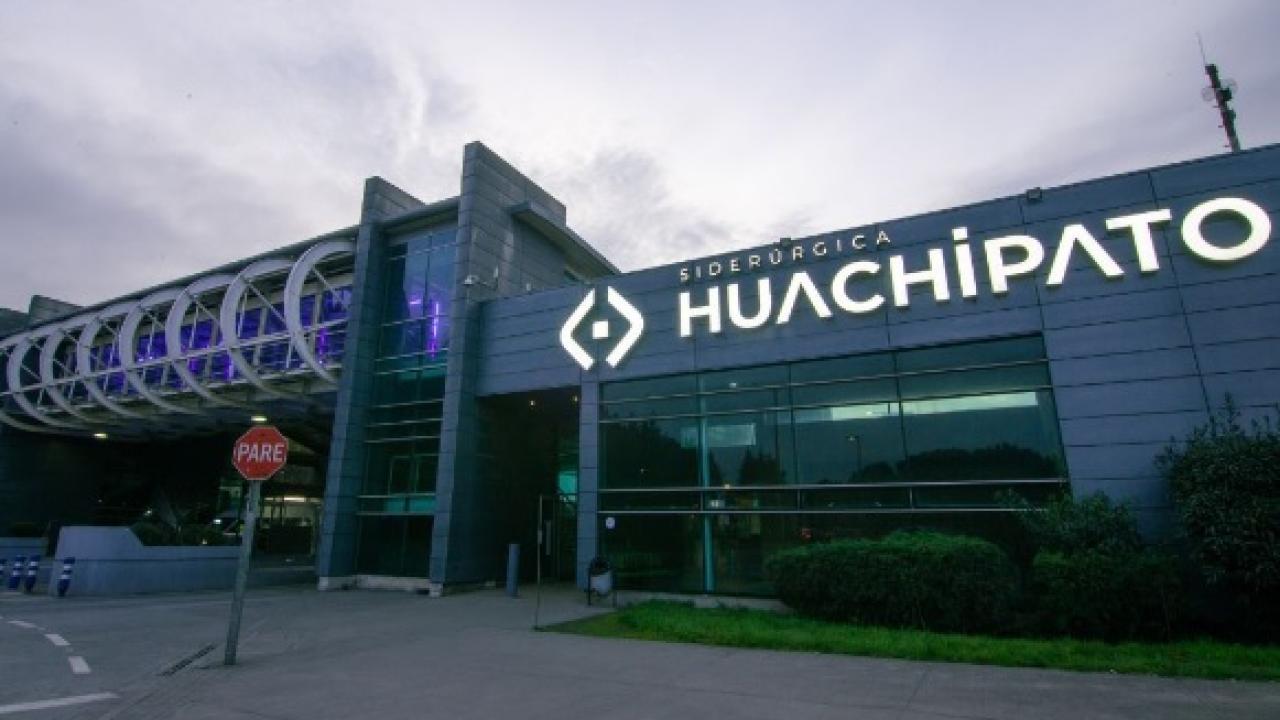
This Sunday, September 15, the Huachipato blast furnace in Talcahuano will shut down, putting an end to decades of steelmaking history in the Biobío region, after the company assured that it was unable to lower the prices of temporary surcharges imposed on Chinese steel.
Representatives of the CAP Group and the Huachipato Steel Company (CSH) met with executives of the German company SMS, with the aim of continuing to advance a plan for the implementation of a pilot initiative for the production of green steel in Chile.
All this just a few hours before the Huachipato blast furnace in Talcahuano shuts down on Sunday, September 15, putting an end to decades of steelmaking history in Biobío, after the company assured that it was unable to lower the prices of temporary surcharges imposed on Chinese steel.
The Minister of Economy, Nicolás Grau, and the manager of Strategic Affairs at Corfo, Claudio Maggi, also participated in the event.
Last June, the parties signed a Memorandum of Understanding in Berlin to accelerate the production of green steel in Chile. That is, steel that does not emit CO2 during its production.
Through this agreement, CAP, through Huachipato, committed to providing projects, resources and infrastructure that contribute to decarbonizing production processes, while SMS offered technical advice to develop sustainable technology to manufacture steel, among other agreed aspects.
CAP's general manager, Nicolás Burr, said after the meeting that "this project is a concrete step in our 2030 Strategy, which aims to lead the production of materials for decarbonisation. It also allows the country to move towards more sustainable industrial production and incorporate innovative trends at a global level."
SMS Vice President of Strategy and Business Development Jan Krull said that through these decarbonisation technologies, “Chile is demonstrating its commitment to global climate goals, strengthening its industrial base and generating added value in the long term.”
The news that Huachipato would suffer an indefinite suspension of its operations was a bucket of cold water for both the workers of the steel company and the Bío Bío region in general, given that 20 thousand jobs depend, directly or indirectly, on the company.
According to the company, the stock of imported steel at low value, among other aspects, made it difficult to lower the surcharges imposed on Chinese steel in terms of price, making operations viable.
Reactions were not long in coming, and criticism of the company was raised from the political world.
The Minister of Economy, Nicolás Grau, even stated that “the country made a significant effort, the unions made a significant effort, everyone in Penco made a very significant effort to generate the conditions that would allow these companies to develop in a good way, and it is the companies that have failed the country.”
With the closure of the company already imminent, Union No. 1 and CSH reached an agreement on September 4, which includes special compensation, parallel to the legal ones, ranging from $3 million for those who had recently joined the company, to $13 million for those who had worked for six years or more.
In addition, there is the situation of the Huachipato contractors, who have also mobilized so that CAP “gives us the same guarantees that were given to its workers. That our rights are not violated. Deep down, we are also from here.”
Finally, the Anti-Distortion Commission has terminated early the investigation requested by the plant for dumping of Chinese steel imports.
And in the case of the instance requested by Molycop, the agency unanimously concluded that "the background does not allow us to determine in this instance (...) that there is damage or threat of damage to the national production branch caused by imports of the investigated product."
That is to say, the existence of dumping by shipments of Chinese steel, specifically steel balls for grinding in mining, is ruled out.









